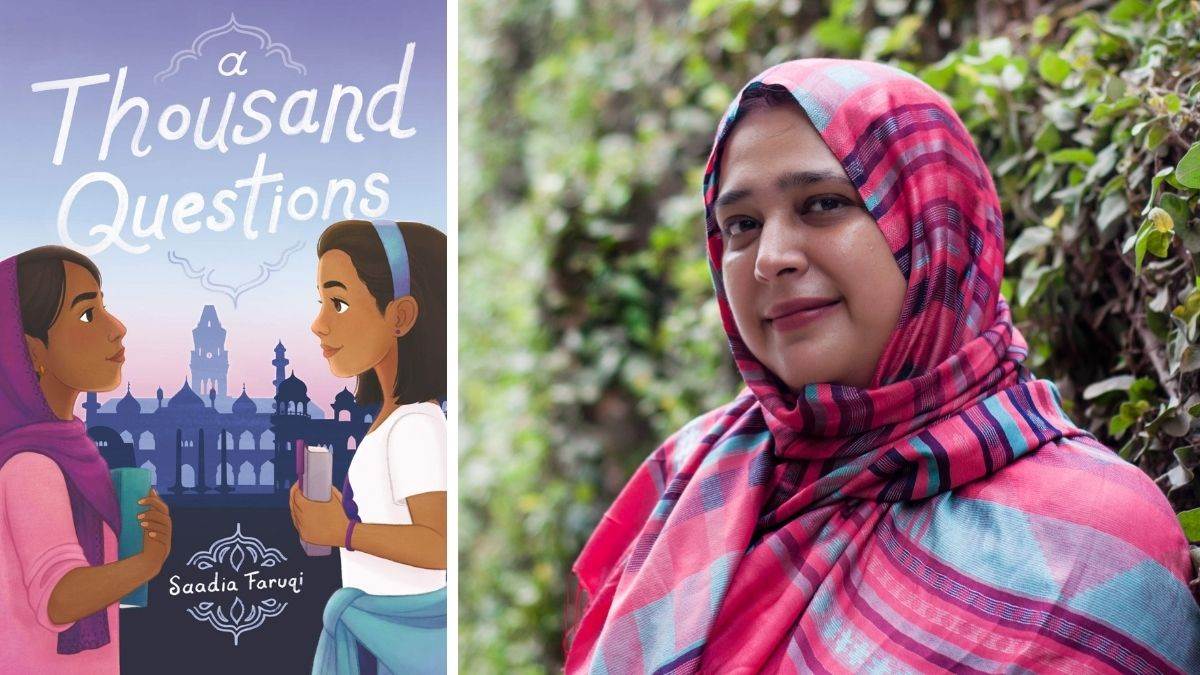Why we need books set in other countries
Published on: 21 December 2020
As a child, Saadia Faruqi dreamed of travelling to the far-off places she read about in her books. She tells us why it's so essential for all children to be able to explore new countries through reading.

Travelling all over the world... from an armchair
As a child in Pakistan, I dreamed of the world. I did this because I constantly read books that were set in the most amazing places: London, New York, Paris, Cairo, Beijing and so many more. As a teenager, I read about cowboys in the Wild West, and damsels in the rolling countryside of England. I read about the South China Sea, the rainforests of South America, and the pyramids of Giza.
Every night (and often in the daytime too), I found myself transported from my small house in Karachi to an exotic, gorgeous, unbelievable place on earth.
Yes, to me, London and New York were just as exotic as anywhere else. All the locations in my books were, because I didn’t live there and never dreamed I could. Yet when I read about the characters and their lives, I compulsively compared them with my own. How were they different? How were they similar? What would I do in the same situation these foreign characters found themselves in? It was fun to think like that as a child, but now I know better. Now I know what I was doing was empathising.
Keeping imagination alive
I’ve come very far – both emotionally and physically – from those childhood days. I grew up and moved across continents and oceans to make a new life in the United States. I became a wife, a mother, and an author. Yet the reading continued, especially reading about different places and people. It was a habit I’d developed over time, the only thing that kept my imagination alive and my brain thinking. It was what helped me assimilate in the U.S., a culture so different from my own, but familiar thanks to all my years of reading American books.
I already knew about lockers in middle school and food courts in the mall and Santa Claus on Christmas… all because I’d read about them.
I knew about clothing and holidays and people’s idiosyncrasies all because of my books. When we visited London a year ago for vacation, I pulled my family excitedly to the haunts of my imagination: Westminster Abbey to view the graves of Mary Queen of Scots (because I’d read so many books about her), and the Tower of London (because of Ann Boleyn) and King’s Cross Station (because of Harry Potter).
I want all young readers to have access to that wide-open space called planet Earth through books.
I want them to travel across borders and fly over oceans in their imagination. I want them to witness history and geography and culture if not first hand, then through the pages of the books they read. Movies and videos are all wonderful tools, but there’s nothing like burying your nose in a good story and forgetting the rest of the world exists.
Reading about other countries creates empathy
Reading books set in other countries develops empathy in a way that very few other things can. When we get lost in a great story, we step into the shoes (and lives) of the characters we’re reading about. That’s what pulls us in and makes our hearts invested in the story’s action. When those characters are “the other” we’ve suddenly become “the other” with them through the story. As soon as we’re hooked, a realization occurs: this character isn’t someone foreign, it’s me. This place isn’t somewhere far away, it’s my home. The power of a good story is therefore to make you one with the characters and the setting.
And when you’re one with the story, you begin to empathise.
Recently I heard someone call reading “armchair travel.” I love the idea of traveling across time and space through the pages of a book. It’s certainly something we should do more of during the days of a pandemic, when actual travel is limited. Yet there’s something missing in travel. A tourist only sees certain things. The buildings, the markets, the sky at night. A book is different. It pulls you into the house of a person, into their lives, their struggles and triumphs. It brings you along for an incredible ride that you’d never get by a week-long visit to a five-star hotel and fancy restaurants. It shows you reality – the good, the bad, and the ugly.
Helping us to understand each other
And that’s empathy. It’s what we all need to develop in ourselves, especially in our young readers. An appreciation of different cultures and faiths and perspectives. An understanding that this world is a mosaic whose beauty lies in all its colors. An ability to see everyone as equal, and not some people as “the other.” Now, more than ever, we need to read books set in other countries, so that we can step into those worlds as if they were our very own.
Saadia Faruqi is a Pakistani American author. She writes the popular early reader series called YASMIN. Her middle grade novel A Thousand Questions is set in Pakistan. Follow her on Twitter.
Topics: Adventure, Travel, Around the world, Diversity (BAME), Features




